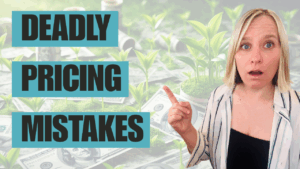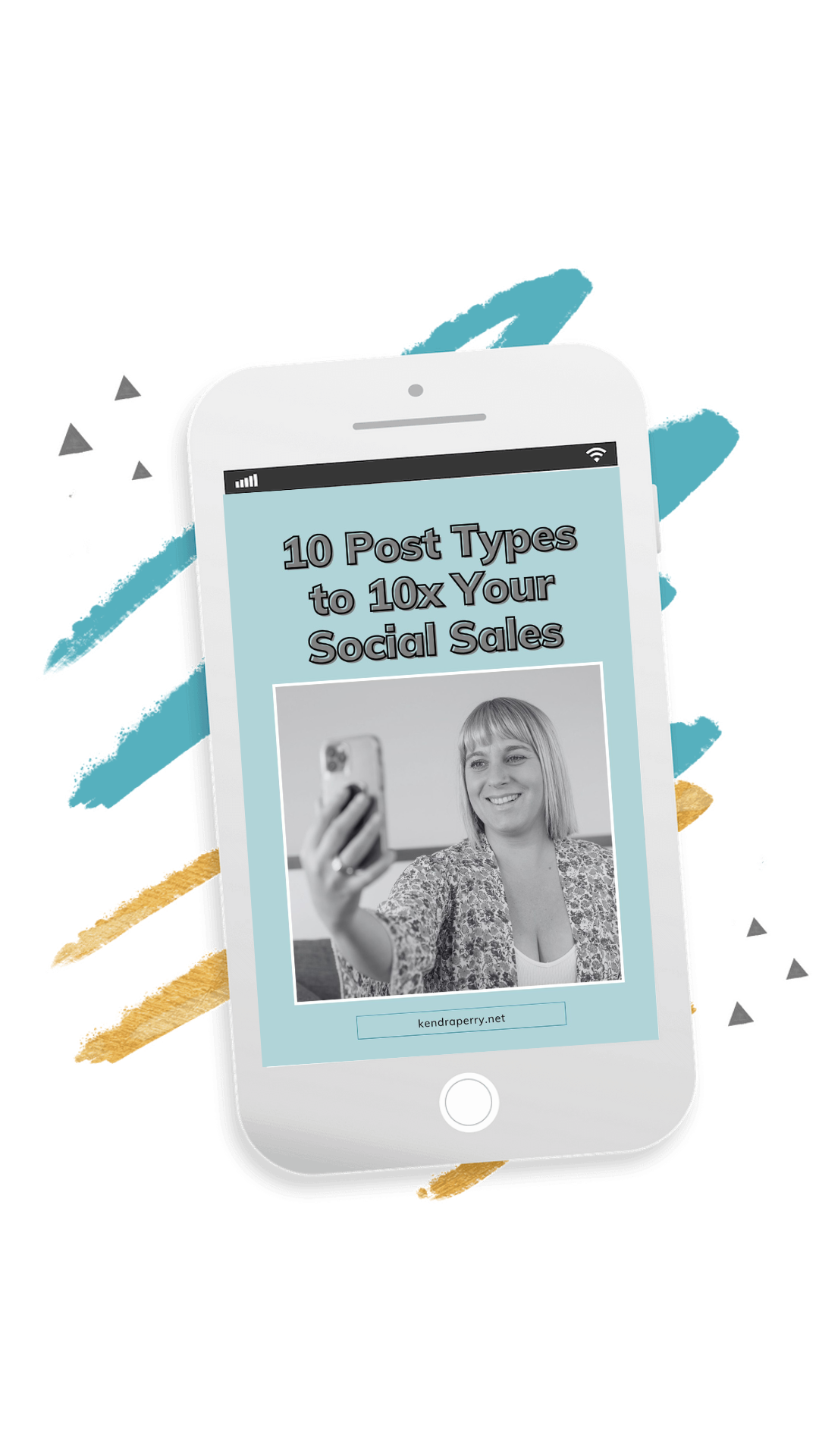Many of us are stoked with the hustle culture and grinding a lot without knowing that it could lead us to burnout! In this episode, Yuri Elkaim, a New York Times bestselling author, teaches us how to make your business work without the hustle by working smart and leading ourselves to our goals. He suggests that business owners should create a business model that they can define and articulate so that business owners can identify where they should be spending their time and what needs to be fixed. Take some time off and tune the volume up because Yuri will help you with his wisdom to step up your game in the business space and lead you to your goal.
—
Listen to the podcast here
Make Your Business Work Without The Hustle With Yuri Elkaim
I’m excited to be here with you, as always, infiltrating your eardrums. I’m going to stop being weird because I’m stoked about the interview that I have for you. We are speaking with Yuri Elkaim. It was so awesome to see his name on my schedule for the episode because I totally used to follow Yuri back in the day when I was a health coach. I remember he used to talk about energy and that sort of thing. This guy is a little celebrity to me from my past when I was a brand new health coach and was just starting.
In this episode, we are going to be talking about all kinds of different things, but with this big focus on hustle culture, grinding, and how to work smarter in your business so that you are not working all the time for nothing and never reaching your goals. A little bit more about Yuri. He’s a former pro athlete, leading health expert, New York Times bestselling author, and the Founder of Healthpreneur, where he helps health entrepreneurs, coaches, and practitioners start and scale online businesses that create more income, freedom and better results for their clients. I have a feeling that you are going to love this episode with Yuri, so let’s not waste any more time and let’s jump into it.
—
Yuri, welcome to the show.
Kendra, thanks for having me.
I am glad you are here. I’m always excited to talk to a fellow Canadian and someone who also was in the health and wellness space, and now serves health and wellness professionals, practitioners, and coaches. I’m curious because I used to follow you for energy stuff way back in the day when I was starting out in 2014. I’m curious how did this transition happen from being in the health and wellness space to serving coaches and practitioners?
It is probably not too dissimilar from how most people do what they do. I obviously lost my heart when I was seventeen, which got me into health because I wanted to figure that out. That’s how I started the whole journey, and then after being in business for more than a decade and struggling for many years because I tried to drift by myself, I eventually started figuring things out.
A lot of people in our space were like, “Can I pick your brain a bit? What are you doing exactly? I would love to get some help on this and that.” That happened a dozen times. I remember specifically that it was August 2015, and I’m like, “Is this the sign from the universe that I should do something with this?” I didn’t know anything about business from marketing because none of us were taught this stuff in school, so I had to figure it out. I spent much of my time building the business. Eighty percent of my time was more on business building than the actual health stuff. The funny part is that marketing, at least at that time, was disseminating the message, which in essence, was sharing the health stuff.
Nonetheless, I had it figured out, and then a lot of people started asking me for help. At that time, I didn’t think this space was very well served. I am a health professional. I love health professionals. I want to serve this market. I want to help them grow. I want to help them help more people. I have some very specific philosophies and views on what makes more sense from a business perspective. That’s how it started.
It’s very similar to my story as well. I agree with you. With people who do health coaching or any sort of wellness certification or education, they graduate and are so underprepared to have a business. It’s this hard realization. Did you experience that where you were like, “I actually have no education on running a business, and I didn’t even know I needed this?”
I went to the University of Toronto for my undergrad. Even then, there was no business acumen or anything, even for friends of mine who went into physical therapy, chiropractic or medicine, nothing. I don’t know if that ever crossed my mind because I am always of the belief that I will find a way to make this work and learn things as I go. I find it absolutely appalling that the education system is able to charge, and I’m talking about formal education.
People go into six figures of debt to get a degree and then be like, “See you later. Have a nice life. By the way, if you can donate as alumni, that would be amazing.” They are with zero skills in how to build a business. I find that shocking. I actually found out that in the US government, the second biggest asset on their balance sheet is student loans.
I’m like, “This is disgusting.” Obviously, health coaching programs and nutrition schools generally have a little bit less money but still, a lot of people go into those programs. I don’t know if you’ve come across this, Kendra, but it’s so funny how some people will drop tens of thousands or hundreds of thousands of dollars on a formal education without even thinking twice because that’s the story that they feel they have to play out.
As soon as they reached out or wanted to get some business coaching, they were like, “It’s a scam. $2,000 to $5,000, I got to see the proof that this works.” I’m like, “Are you f***ing serious? You spend $300,000 and have nothing to show for it, which is a scam.” It drives me crazy. That’s part of the ethos of why Healthpreneur exists is to help health professionals stick it to the system and help people, including themselves, because it’s a freaking joke.
It’s interesting and true because, even if you don’t go into debt for $30,000, $40,000, or $50,000, it’s pretty typical for any degree. I have a degree and don’t even know what. It’s either Geography or Environmental Science. I don’t even remember because that’s how unimportant it was to me. No one seemed to have a problem with me and my parents throwing all this money towards my education. The whole time I was in there, I was like, “I don’t know what I’m doing. This seems okay, but I’m going to party at the campus pub and have a good time.”
Can you imagine selling a business coaching program where you would never show up as a client, and you will party and waste all your money on booze, and that was okay? It’s crazy. I understand it’s part of the experience as a student but it is nuts.
Even in health coaching and education, they are spending a wild amount of money on their education. They are always willing to spend more on it. As you said, the second you are like, “By the way, you need to learn the business. I have this program, and it’s only a couple thousand dollars.” They are like, “I spent $10,000 on my health coaching certification, and I’m going to spend another $5,000 on this program and another $2,000 on this program. You want $2,000 to teach me business. F*** you.”
I call it the certification epidemic. I don’t know whether it’s a feeling of I’m not good enough, so I need to have more letters behind my name or delaying the inevitable of possibly getting rejected in the marketplace. It’s safer to build up your credibility than it is to put yourself out of the marketplace. It’s interesting.

It is interesting, and I go back to when I was starting and went to a bunch. This was me. I did FDN. I went to the Canadian School of Natural Nutrition. I would have all these letters behind my name if I were ever to put them there. What I was doing is thinking that I needed more experience to be more credible. I had an inferiority complex because I was always being compared to doctors and natural paths. Why couldn’t I go to my doctor? Why shouldn’t I go to my natural path? I always felt I had something to prove.
I get that 100%. That’s a big Imposter syndrome and an inferiority complex, “I’m not quite good enough. Therefore, I need more skills and tools in my toolkit.” It’s a toolkit that has no bottom. You keep putting tools in, and then it’s endless. Part of the problem too, at least how I realized it for myself, is that we are so immersed in the material. There are two things.
Number one, we think everyone knows this. The second thing is that we undervalue our own values. If we think that drinking 2 liters of water a day is normal, everyone knows that. Most people don’t. We take for granted that our first language is not everyone’s first language. It’s their eighth language. We were speaking English, and they were speaking Arabic, and they were like, “What? I should be eating fruits and vegetables.” It seems so basic to us, and we are like, “How would we charge for that? Why would people pay me for that?” The reality is that most people, even though they know what to do, they are not doing it.
Part of the benefit of having a coach is having someone you are accountable to do the thing that you say you know you need to do but you are not doing it because you are doing it by yourself. For me, I had a lot of issues with pricing, even before starting my business online. I got to the point where I realized that I had to step into my power and stand on my own worth. Not that I had to be the world’s best trainer or nutritionist or whatever but it was understanding that I was good enough based on who I was helping.
I was always a couple of steps ahead of them, and I was okay. It doesn’t mean that I couldn’t keep getting better because I always did but it also doesn’t mean that I had to delay and procrastinate forever to become perfect, which is never going to happen. When you put yourself out there, you get feedback from the marketplace. You see what’s working, what isn’t, what types of clients you are working with, what types of clients you don’t like working with, and where your skillset can be improved. That’s how you improve and get better over time. It’s impossible to do that if you don’t even start.
People are chasing confidence, “It’s okay. I was told I was going to do this health certification program, and then I was going to feel confident working with clients but I haven’t worked with the clients. I don’t feel confident. That means I need to know more, so I’m going to take this next certification.” They are chasing this confidence that they will never get through certification. As you said, they are only going to get through action and doing the work, working with clients, and putting themselves out there.
You can’t develop confidence without courage. Courage is the bridge to go from commitment to confidence. If you commit to wanting to be better at something or doing something, there’s no helicopter coming to pick you up to avoid courage. You have to use courage, and courage doesn’t feel good. When you are doing something that feels good, it is usually because you are somewhat confident. If you are doing something that doesn’t feel good like an enrollment call for the first time, that requires courage. The more of that you do, the more confident you become.
My son Luca is afraid of spiders and tends to attract a lot of spiders in his room somehow. He’s the only person in the house who has spiders in his room. It’s interesting. When he comes down and says, “I have a spider in my room. Can you get it?” I’m the helicopter in this scenario coming to save him from commitment to moving him to confidence. Instead, I come upstairs with a little Dyson vacuum cleaner and I’m like, “Buddy, you do it.” He’s like, “No.” He’s so paralyzed by fear that it’s very hard to rationally talk with him about this.
That’s a little spider. I’m not talking about black widow or trench. I’m talking about a tiny daddy-long leg in the corner of his room that he can’t even reach because the ceilings are higher than he is. I’m like, “How about we take one step closer to the spider?” He’s like, “I don’t know.” “What’s the worst thing that’s going to happen? Do you think the spider is going to jump off the wall and attack you? No. Let’s take one step.” We are using a little bit of courage in moving toward the thing. In psychology, it’s called Success of Approximation.
It’s taking one step closer and closer to the thing you are afraid of until you get to the point where you are right next to it, and you are like, “It’s actually not that bad.” If you can’t do that, I will be like, “Let’s go read about spiders.” That’s going to help him in no way, shape, or form other than being more informed about spiders. Everything in life is the same way.
You have to do things that make you feel uncomfortable because that’s how you grow and get better. If you lift 5-pound weights forever, you are not going to get much stronger but 30 pounds is heavy. It’s not that it’s heavy. It’s just that you are not strong enough yet. It will become later as you get stronger. It’s the same thing with most things in business and in life.
I love that analogy about the spider. It describes that whole relationship with courage and taking action so well. I want to dive into this whole concept of the hustle-and-grind culture. I feel like it’s so glorified these days, and people are hustling. I’m curious. Personally, how do you define hustle and grind culture? Why is it not serving health practitioners?
I define hustle and grind as doing a tremendous amount of work in things that do not bring you joy. I define it that way because I would say that I work a lot. I wake up at 5:00 every morning and work until 4:00 in the afternoon every day. Saturdays and Sundays, I work, but after two hours in the morning, I’m done.

Generally, Monday through Friday, I put in a lot of work. Obviously, I take walks and work out during that time. For me, it never switches off. As a business owner, it never stops. I would consider myself someone who loves working. I genuinely love working but I also work more now than I did before I started my first business online in 2005. I was training clients and working with them one-on-one. I worked 12 to 14 hours a day. That’s still a lot but I hated it. It was exhausting, and it destroyed my soul. Now I work about the same amount or a little bit more but I love every moment of it.
The difference is having the choice of doing what it is you want to do. Most entrepreneurs seek freedom above all else. Freedom to do what you want, with whom you want, when you want, where you want. The choice of getting to do things is very important for our soul. Hustle and grind for me is feeling you have to do things because that’s what other people have said you have to do to achieve a certain thing. Somewhere, it does not make sense to me.
There’s always a smarter way of doing things. It’s not that there’s a better way or that this works, and this doesn’t. There are faster ways and smarter ways of doing things versus others. It depends on the season of the business journey as well. You are going to work a little bit harder, perhaps when you are starting things out, learning skills and fundamental stuff but if you are going to work hard, it’s smart to work on building systems and assets that are going to work for you.
I have a fundamental problem doing something. If this interview were not recorded, I would have had an issue with that. I used a certain amount of my time that has now disappeared to Ether forever. I have always been thinking, “If I’m going to do something once, how do I capture that, leverage it, and disseminate it forever?”
Part of the internet is, for the most part, if you create a piece of content, it lives on the internet forever. Now, whether people see that or not, it is a different story. Fundamentally for me, I still have an issue with Instagram Stories. I cannot stand doing Stories. Maybe part of that is because they are gone in 24 hours. That’s me. If we are going to put in the time, work, and “hustle,” it makes sense to hustle by doing things that are going to build your future. I share this because when I was first online, coming 2006 to 2009, I worked a lot.
I don’t even know what the hell I was doing, to be honest. Now that I think about it, I worked a lot but it was a lot of busy work. I was grinding but I had no rhyme or reason. It was like I was driving a car and doing donuts in a parking lot as opposed to driving straight down a highway. I had no map, no GPS, and no clue what I was doing but I was pedaling to the floor and burning my tires.
That’s how I define grind and hustle. By contrast, if you are going to drive the same speed down the highway to a destination, it’s a little more enjoyable. I’m all for working hard in certain seasons of business, probably more than others but if you are going to work hard, you are better off building systems and assets that are going to work for you when you stop working hard.
It sounds like you work a lot but you could work less. You are literally choosing to work as much as you do, correct?
Yes. I’ve stressed that I tested my business on a few occasions. In my previous company, I took two months off in the summer many years ago. I was incommunicado and going to go nuts. Thankfully, I could play tennis and do some cool stuff. In 2022, I took a week off in January. It’s wintertime, and I can’t do much outside. I’m at home. What am I going to do with myself? Part of it is that I need to be able to fill my time with other things. I need to be active. I like playing tennis and doing stuff outdoors. If I don’t have that opportunity, I will naturally gravitate towards doing work.
I can always find work to do. Most of us can. It’s almost a default setting where it’s like, “I could do a bit more of this.” I’m very aware that a part of that is conditioned but I love it. I love the challenges and figuring things out. I love the growth that happens at every stage of business. It’s very enjoyable for me. I’ve got four kids, so I’m very present with them as well, and I spend a lot of time with them. Typically, from 3:00 to 4:00 in the afternoon, I’m finished. It’s kid and family time.
I’m sure what I do will evolve in some way but I don’t see myself retiring. I know that if I lie on the beach for more than a day, I’m like, “I got to add some value. I have to contribute and do something.” I like having the balance of, “I can go for a run for half an hour. I can go play tennis for three hours. I’m going to come back and do some work.” For me, it’s nice work-life integration that brings me a lot of joy.
I feel like you are speaking my language because that’s totally me. If I want to take a break, I must take myself out of my house. Usually, up into the Alpine, where there’s no cell service. It’s an eight-hour hike somewhere in the middle of f*** nowhere, then I’m like, “I can do nothing and chill.” If I’m sitting at home on a staycation, I don’t know how I would ever do that.
It’s a nice thought in my mind but I’m like, “No. That would not happen.” I’m curious because I know that my audience was newer in their business journey. They are probably in their first three years. Something I often hear from them is, “Everything relies on me. How do I not hustle and work my ass off because I’m doing everything?”
I share all this because I’ve made so many mistakes. My business journey could have been condensed in half the time. Had I not been such a slow, stubborn learner, I shared everything. I share from experience. I’m not making stuff up here. One of the biggest problems that I see amongst health coaches is that they don’t even have a business model. For me, a business model is, how do you generate leads?
How do you convert them into paying clients? How do you deliver results? If you can’t draw that, you don’t have a business model. If you don’t have a business model, then you can’t identify where you should be spending your time or what needs to be fixed. If you don’t have a business model that you can clearly define and articulate, then you are doing stuff.
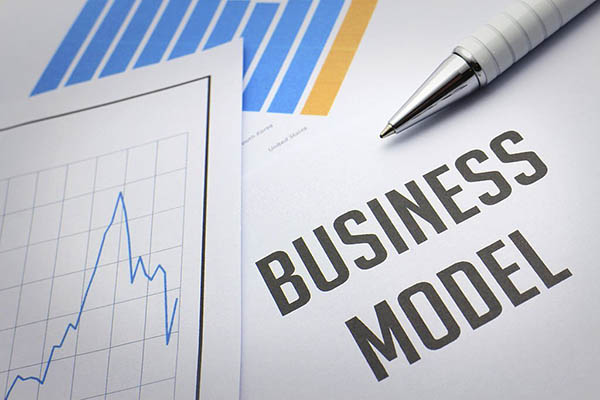
That’s what my existence was for three and a half years when I started online. It’s very frustrating. It feels like you are putting in so much work because you are, and nothing is moving the needle. There are all sorts of different business models, and I’m not here to judge but a lot of people come online and they treat their business as a hobby. As a result of that, they do hobbies as activities posting dancing videos on Instagram, thinking that’s going to grow their business.
I’m like, “Are you for real? If you were to set up a clinic, you are going to pay $10,000, $15,000 or $20,000 a month in the lease but if you come online, do you think paying $97 for ClickFunnels a month is a lot of money?” Let’s get real. There’s a mindset around taking your business seriously because if you don’t treat your business like a business, you are not going to have a business.
Number one is to define the business model. In our case, we have a very simple business model. It’s how we’ve grown our business. It’s the same business model we teach our clients. Different people have different business models but if you are not able to identify what that is, it’s very hard to know what the inputs need to be to move the needle because you don’t know what moves the needle. As an example, 95% of our business is generated from paid traffic. It’s a very predictable system. We can forecast very easily but we also do a lot of content. My first business was largely built on content, and this took seven years to make our first million.
We spent almost 10 years growing our blog visits and following to 1.4 million visitors a month. We grew our YouTube channel to 300,000 subscribers. A lot of that was you don’t know what’s going to move the needle. You are like, “If I post one video a week, can I predict how many leads that’s going to generate?” You have no clue. One video might take off, another one might do nothing. When you rely heavily on an organic type of strategy, a lot of it is naturally going to be based on volume. I’m a huge proponent of content.
I produce a lot of content even though I demonize it in our marketing because I don’t believe, for most business owners, especially if you are $5,000 to $10,000 a month, if you are going to play the free content game, number one, it’s not free. Your time isn’t free. You can never make more time. You can always make more money.
Again, it took seven years to make $1 million in my first business. It took us less than seven months to make our next million with the better system. Again, it’s not all about the money but how things move is going to be dependent upon the type of vehicle you have. As an example, we post a lot of stuff on TikTok because I do think it’s going to be a great platform for our audiences in the future. We haven’t generated a single sale from TikTok in a year. I don’t care. We’ve invested in quality video production and a lot of content.
I’m talking about posting 3, 4 or 5 videos a day on TikTok but none of that is predictable. It’s like, “I’m going to do the TikTok game. Let me share what my experience has been. Here’s basically what’s going to go into it, and you have no clue what’s going to come out. Some stuff might hit. Most of the stuff you think that’s going to hit won’t. All the best.” Coming back to being able to clearly define what your business model is, as a result, you can then define what the strategy is and then what you are going to do in terms of the inputs or activities to move that needle moving forward.
It totally makes sense. There were so many gold nuggets in there. The one thing that popped out to me was making dancing videos on Instagram Reels and TikTok and thinking that’s going to grow your business. This is a way that Reels have done a disservice to business owners because you can do a trending dance, whatever Reel, and get so many views, and people get excited about that. As you said, how does that serve the people whom you want to help? I have so many people who come and reach out to me. I have less than 10,000 followers on Instagram.
I, by no means, have a big account, but I have these people reaching out to me who have 50,000, 60,000, and 20,000 followers and don’t have a single client. They’ve built their following off these trending topics, dancing, whatever Reels, and they are like, “I don’t understand why I don’t have a client.” I have been seeing this so much lately, and I’m like, “It’s the Reels effect. It’s the TikTok effect.”
A lot of people have mistaken dopamine for dollars. I’ve gotten caught up in this too. I check, and I’m like, “This video gets some hits.” You get caught up in that because you are always hoping that this is the thing that’s going to take off. For instance, we’ve had a couple of TikTok videos that have gone pretty crazy, which is crazy in relation to our account. It’s hundreds of thousands of views but they’ve done nothing for our business.
If I were to get caught up in that world of, “This one took off,” so what? Where do the clients come in? Where’s the money? It’s not there. It’s very addictive to get caught up in that. I remember when I first started on TikTok, one of the things I noticed fairly early on was that the platform was giving some of our videos a tremendous amount of views out of the gates.
I thought to myself this is a very interesting crack that they are selling. As a platform, if you can get a user to come on the platform, they have no videos on the platform, and all of a sudden, they posted their third video, which has 50,000 views. You are like, “Crap, I’m going to do more of that.” Again, I don’t know if this is actually what’s happening behind the scenes but I noticed this over time that has greatly diminished. It’s like you had that first amazing date, and then the rest of the relationship was like, “Are we ever going to have that kind of date again?” It hasn’t quite lived up to the initial experience. Also, platforms have become a bigger thing now.
They are pushing that a little bit more than organic. Nonetheless, I think people get caught up on whether it’s the Reels, TikTok, or anything else or get some dopamine hit from likes and follows on that specific post for video. They want to do more of it without keeping the main thing, which is the money in the bank.
Am I helping people? When I say am I helping people, let’s be real. Someone watching seventeen seconds of your video is not transformed their life. Someone is paying you $3,000, $4,000, $5,000 for you to work with them and doing the work and working with them, that’s transformed their lives. Let’s keep the main thing the main thing.
It plays into this whole concept of hustle that we are talking about because you are literally working your ass off to make these dance videos for absolutely no reason. I would love to dive into a little bit more of the mindset around hustle. There are a lot of people who feel like if they are not working hard and hustling, then they are not successful. What have you seen in regard to that?
This is probably one of the biggest things I’ve had to learn and work on myself because I’m a very action-oriented person. I’m also a very spiritual person. Not religious, but very attuned to energy and all that stuff. Energetically, hustle is the antithesis of allowing to create an energy within you that is attractive to receiving things. You have to be putting yourself into a receptive state so you are allowing things to come into your life.
When you are constantly grinding, you are essentially telling the universe, “I don’t have faith in the process. I’m going to force the issue here. I’m going to overwater the grass because I don’t believe the grass is going to grow.” One of the biggest challenges I’ve had to work through is creating that balance of knowing that, “Everything I want is already here.”
It’s not, “I hope it comes.” “No. It’s already here. You just can’t see it.” It’s believing and expecting that to be here. Starting from that foundation from an energy and a mindset perspective, then with that in mind and positive expectancy, taking inspired action as opposed to it’s not here yet, “I got to do this thing. I got to make this happen. I have to make that happen energetically.”
You could put in the same amount of work, for instance, but the mindset or the belief system behind that is two very different frequencies. I don’t think you can sit in a chair and visualize things in your life without doing anything. There is an opportunity to subjectively feel like you are working less hard because you are setting yourself up energetically in a space allowing things to come into your life more easily so that when you do the work, things happen with more flow, if that makes sense.
I’m a lot like you. I’m very spiritual, not in the religious sense. Energy is a big piece of it. People, especially when they are new in business and are not making money, they put out these desperation vibes. They want it so much, and people can sense that. They may not know what they are sensing but they are like, “There’s something about this person. The energy doesn’t feel good.” Finding that flow and visualization and being able to connect to the energy in a little bit more of a spiritual way is helpful for people. What’s the first step in moving past this hustle culture and this work scenario that a lot of coaches and practitioners are finding themselves in?
The first step is that you always have to be clear about where you want to go and spend some time clarifying what it is that you want. The most important question we all have to answer in life is, what do I want? If you understand what you want, then you can reverse engineer to some degree how you can make it happen.
Number one is being clear about what you want. Sometimes, it’s hard to know what you want ten years from now. What was interesting is that I was digging through some old journals and came across a journal. I randomly opened a page, and it was August 2012. I had some stuff written down in there of stuff I wanted to achieve in my life.
I’m like, “Holy s***, I’ve done all that stuff. That is so cool.” It’s so funny looking back on it because I can remember at that time forcing the issue. It’s not here yet, etc. Looking back a couple of years later, I’m like, “No big deal. I got that anymore.” It’s clarifying what it is you want. The real work, I believe, is energetically putting yourself into a state as much as you possibly can on a daily basis. To act as if, to believe as if, to feel as if it’s already here on its way and not, “Please, I hope this is going to work out.”
That’s the hardest work that we can do as humans and as entrepreneurs, and then from that foundation, on the more pragmatic side, is doing the work. Whatever you know you are doing tactically is doing the work. It’s very helpful if you have some guidance, a coach, a mentor or whatever. Some type of roadmap, accountability, and support to get where you want to go.
Let’s assume you have that, even if you don’t have the money to hire, hire a coach. It’s the biggest mistake I ever made and the best thing I ever did. Find a way to make it happen because once you know what to do, whatever effort you are putting in is going to pay off. It’s so funny, people are like, “I got scammed by this program. I did this and this, and it didn’t work.”
I’m like, “Maybe you didn’t f***ing work because all those programs work. How is it possible that all of those programs have success stories? If they didn’t work, they wouldn’t have any success stories. You should look in the mirror.” Whatever it is you are doing, whoever it is you are getting guidance from, whatever plan you are following, do it to the fullest.
When you have a course of action, “Here’s a step, here’s the next step,” you have a plan that’s going to produce results. You pair that with the energetic work of being in a state of allowing and expecting good things to come in because that’s how you’ve done the work, and then it takes time and understanding that it doesn’t have to take ten years.
It could take a year. The difference between $1 and $1 million is what you believe is realistic for how long it’s going to take to come into your life. Why do you have to take five years to make $1 million? What if you could take five days? It’s because you don’t believe it can take five days. Doing that type of work is massively important because that is reflected in everything else. It reflects on your pricing and how you show up.
You talked about that desperate, needy energy. It’s huge because not only is it repelling other people, the universe is repelled by that. I tell my clients, “I can give you the tactics. I can show you the strategy. I can do all this stuff with you but if your energy is s***, it’s not going to work.” It’s so interesting when we’ve had clients come in, right away I’m like, “This person is going to crush it.”
They were on a Zoom call with me, and I could tell by their facial expressions, their energy, how they showed up, and the bubbliness in their voice. I’m like, “This person has what it takes to create amazing things.” I don’t even know about their business, for instance, but I can tell, based on their energy, that big things are going to happen.
It usually does. Those who struggle typically are the ones who are like, “It’s tiring listening to them.” The tactics and strategy are making sure you’ve got a plan to follow and doing the energetic work to put yourself in the state to allow good things to come in. If you pair those two together, amazing things happen. The first step to all of that is you got to hire a coach. It took me way too long to figure that out.
What I’m about to say is going to sound obvious but I wish more people put this in the practice, especially in the context of a business coach. If you don’t feel you have the money to hire a business coach, that’s exactly why you have to hire a business coach. How else are you wanting to make the money when you say you want?
As a trainer working with clients or having a consultation with a client, they are like, “I’m going to work out on my own for a bit. I’m going to get in shape, and then I’m going to come to hire you.” I’m like, “How has that been working out for you?” Asked backward, and it’s the same thing. I’m sure you’ve come across this as well. I’m going to do my own thing for a while, which is the very thing I told you isn’t working but it’s going to change now after we’ve had this 30-minute conversation.
I hired my first coach in 2010. It was more money than I made in my previous year in business. It took me three years to get to that point, and I wish I had gotten there sooner. I put it on two credit cards, and as soon as that happened, I was like, “I’m going to make this work. I have to make this work. There’s no, and, if, or buts.”
If I hadn’t made that investment, there would always be an out. Entrepreneurs put themselves in precarious situations sometimes that act as positive pressure to get the most out of you. Don’t shy away from that. It’s a huge opportunity. Put yourself in positions that make you somewhat anxious initially. You have to use that courage. Otherwise, it’s too easy to stay in your comfort zone.
I totally agree with this. I’m speaking back to the hustle if all your time is spent trying to figure out what is the actual plan. Most people, as they start out, don’t have a team. They are solopreneurs. You don’t have time to waste, and you are spending all this time googling, researching, reading things, and trying to figure it out versus investing in a coach might hurt a little bit but someone who can lay out the path for them.
It’s huge. It’s interesting. I’m sure you’ve come across this too. If I were to start a restaurant, I would never be like, “I’m going to serve a restaurant for free. I’m going to do this. I’m going to find a free building to rent. I’m going to be the server, hostess, cook, and manage whatever.” No. When people invest in a restaurant, they are using capital. They are getting a loan. They are putting up their own money like $100,000-plus of investment, and then we have these coaches who start online businesses. As you said, they are pissed off about the $97 ClickFunnels subscription.
It’s small thinking. The dilemma with becoming a coach or working online, for example, is that the barrier to entry is zero. Anyone can call themselves a coach. Anyone can have a good month and call themselves a guru. The challenge is that very much in real estate. I saw a stat a while ago. It said, “Ninety-five percent of real estate agents make less than $5,000 in commissions.”
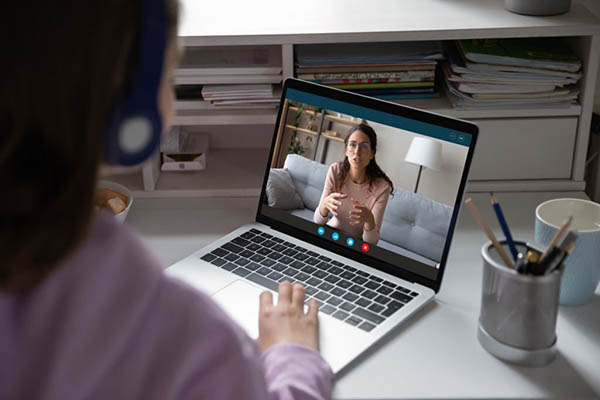
I was like, “That’s crazy.” The barrier to entry to become a realtor, no offense to realtors, is very low. You take an exam, and that’s it. When you have a low barrier to entry, you have a lot of people that come into the marketplace with a very delusional view of what is required to build a great business. For the most part, in terms of numbers, most people have a small vision for their life of what’s possible based on how they see themselves and their worth, etc. If you have a small vision, you have small action. If you have small actions, you have small results.
If you have a business and your goal is to cover the bills, why would you ever invest in a coach? That’s more than what you want to make. The first part is that you have to grow your vision, and if you don’t want to grow your vision, then you don’t need to listen to this conversation. For people that want to build something great, I actually fundamentally think it’s selfish to play small.
If you are a health professional, you have something that can transform people’s lives, you have the ambition to impact people, which is what all of us want to do, and you are like, “I want to cover the bills.” I’m like, “Why even bother playing the game? You are not helping anyone here. You are slowing the whole system down.” It’s thinking bigger. The thing that I’ve realized too is that it’s not that much more work to make $100,000 than to make $10,000. You are still putting in the same amount of thought, effort, and execution.
There’s no difference between adding zero share pricing, doubling your pricing or adding 25% share pricing and keeping it at a lower price. Much of the stuff is in our minds. I encourage everyone that’s reading, especially health professionals, as so many people out there are suffering, 2/3 of the freaking Western world is sick, fat, and unhappy. These are all clients ready to be freaking served. The smaller we play, the more these people suffer. We have to get out of our way.
I totally agree with that, and you are right. Many people are suffering, and definitely health coaches professionals are so needed. This has been an enlightening conversation, Yuri. If my audience wants to stalk you online, how can they find you?
The best place is Instagram, @Healthpreneur. If you want to check out my videos on YouTube, it’s the same handle. I give everything away for free. I could care less. I will share as much as I possibly can. Those are the two places.
Thank you so much. Everyone, follow Yuri on YouTube and Instagram. Thank you, everyone, for tuning in. I so appreciate your time. I will see you next episode same time, the same place where I help you become wealthy as f***.
Important Links
- Healthpreneur
- TikTok – Yuri Elkaim
- @Healthpreneur – Instagram
- YouTube – Healthpreneur
About Yuri Elkaim
 Yuri Elkaim is a former pro athlete, leading health expert, New York Times bestselling author, and the founder of Healthpreneur® where he helps health entrepreneurs, coaches, and practitioners start and scale online businesses that create more income and freedom…and better results for their clients.
Yuri Elkaim is a former pro athlete, leading health expert, New York Times bestselling author, and the founder of Healthpreneur® where he helps health entrepreneurs, coaches, and practitioners start and scale online businesses that create more income and freedom…and better results for their clients.
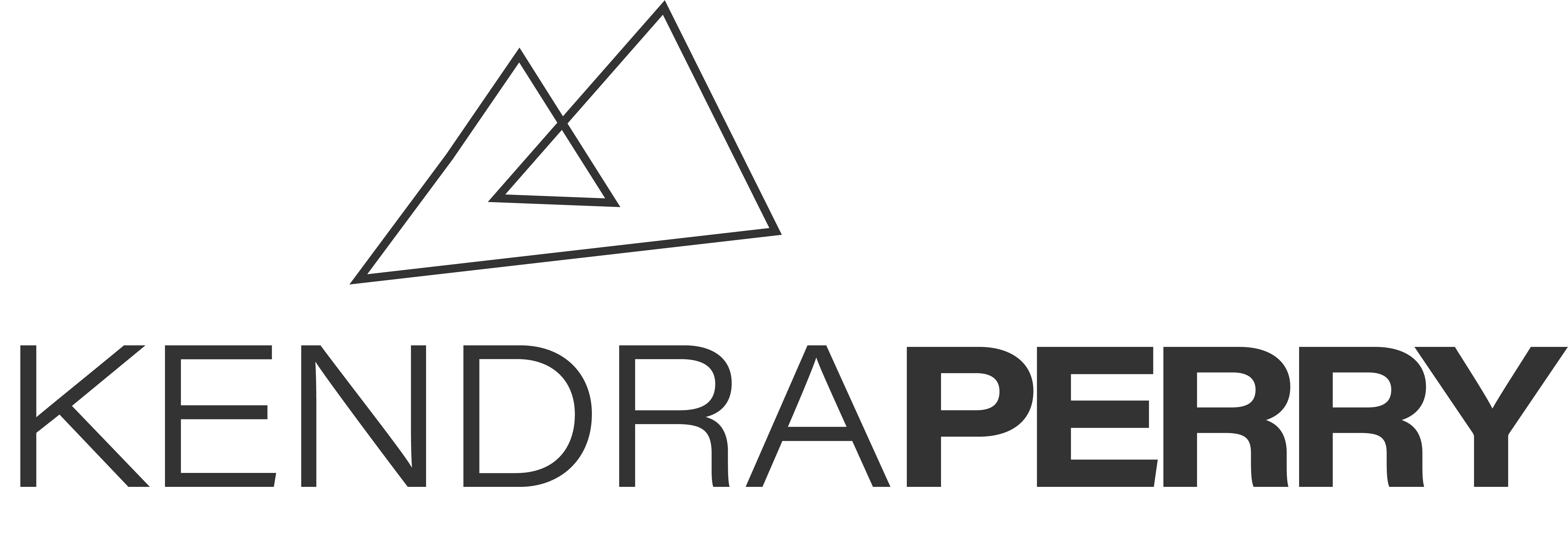
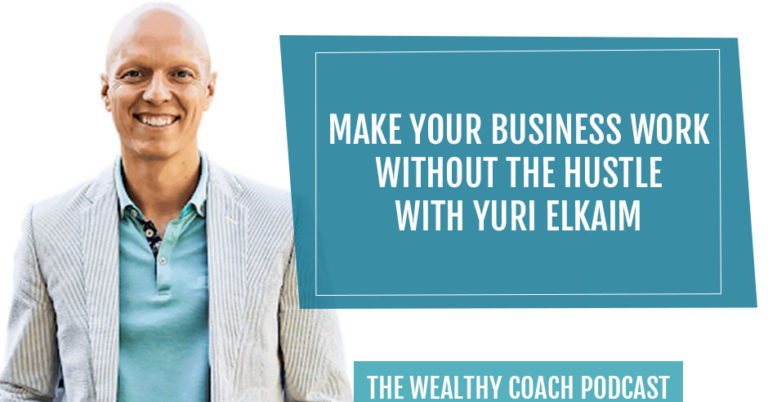
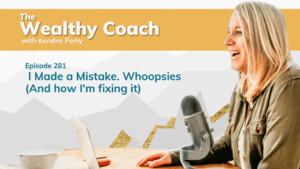
![[BEST OF] A Cautionary Tale About Your Niche](https://kendraperry.net/wp-content/uploads/2025/05/BEST-OF-A-Cautionary-Tale-About-Your-Niche-300x169.png)
